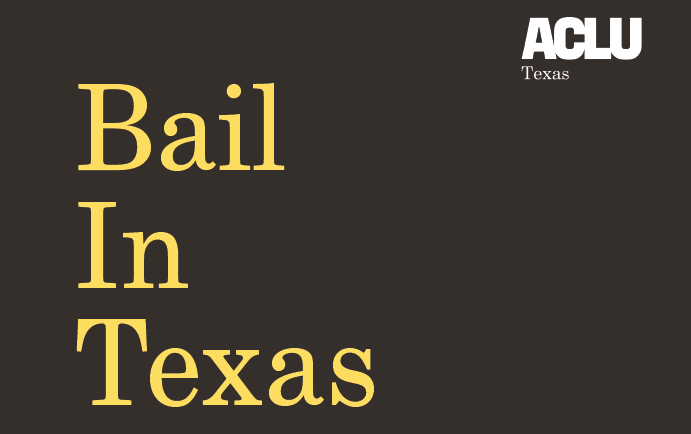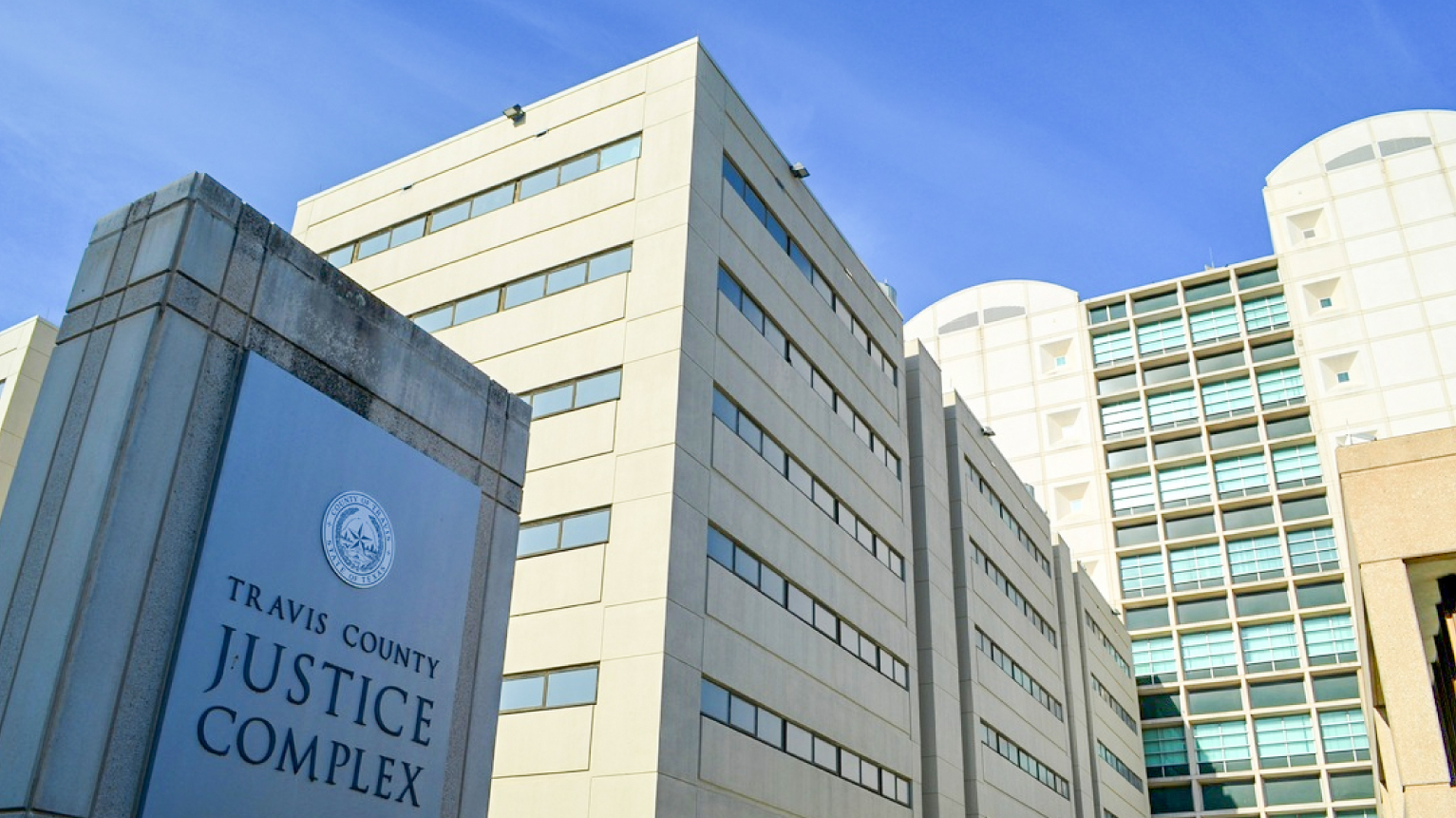Texas county jails detain more than 53,000 people on any given day who have not been found guilty of a crime. The vast majority remain in jail simply because they cannot afford bail: the amount set by the court that a person must pay to be released.
This brief provides a high-level overview of Texas’ two-tiered bail system. It describes how the current approach to pretrial decision-making fails to deliver the safety and justice that Texans deserve — at great human and financial cost. And it includes recommended improvements to our pretrial system.
READ THE BRIEF
Date
Thursday, January 30, 2025 - 1:30pm
Featured image
Show featured image
Hide banner image
Related issues
Smart Justice
Documents
Show related content
Tweet Text
[node:title]
Share Image
Type
Menu parent dynamic listing
Show PDF in viewer on page
Style
Standard with sidebar
Show list numbers
Author
Nick Hudson
Anti-immigrant laws like Senate Bill 4 are part of a much larger, unconstitutional effort by Texas politicians to enforce discriminatory immigration policies through the state’s controversial program known as Operation Lone Star (OLS).
Gov. Greg Abbott launched OLS in March 2021. Since then, Texas has spent more than $11.2 billion on the program. OLS claims to stop migrants from allegedly bringing drugs and crime into Texas — even though the state’s own data proves that’s not the case.
Our latest report reveals that OLS spends billions of dollars to racially profile and arrest people who pose no threat to public safety, then forces them into a separate and unequal legal system run by the state.
Key Findings
- OLS demonstrates racial profiling and unconstitutional policing.
- OLS has primarily arrested people accused of low-level offenses like trespassing, rather than drug-related offenses, human smuggling, or weapon charges.
- OLS has overwhelmingly prosecuted U.S. citizens, rather than migrants, for drug-related offenses, human smuggling, and weapon charges.
- OLS has expanded far beyond the border.
- OLS data is inconsistent across state agencies.
Report
Recommendations
Unchecked cruelty is not a policy solution. Operation Lone Star must be shut down.
As long as Operation Lone Star is operational, the following recommendations will help stop the human and civil rights violations of this program, reduce its harsh impacts on border communities, and waste fewer taxpayer dollars:
- Return access to local parks and banks along the Rio Grande to border communities.
- Stop abusing emergency disaster declarations.
- Repeal enhanced trespass penalties.
- Coordinate with the federal government to ensure that people seeking asylum are given their lawful right to do so.
- Establish an independent monitor to oversee DPS, the Texas National Guard, and other OLS actors.
- Redirect OLS funds to impacted ranchers and farmers and other members of border communities that face land use issues.
- Make the program transparent and accountable to Texans and policymakers by improving data collection and reporting.
Date
Wednesday, May 22, 2024 - 11:00am
Featured image
Show featured image
Hide banner image
Override default banner image
Related issues
Border and Immigrants’ Rights
Show related content
Tweet Text
[node:title]
Share Image
Type
Menu parent dynamic listing
Show PDF in viewer on page
Style
Centered single-column (no sidebar)
Show list numbers
Currently, people arrested in Travis County, Texas, are forced to appear in initial criminal court hearings — called “magistration hearings” — without an attorney representing them.
As part of the ACLU of Texas’ court watching program, law student volunteers provided by The University of Texas School of Law’s Mithoff Pro Bono Program recorded observations of 686 magistration hearings from January 15 to March 15, 2024.
Based on our analysis of these observations, magistrate judges required a majority of people to pay in exchange for release from jail. Accused people were forced into hearings where their rights were jeopardized, they had difficulty communicating, and they couldn’t contest or even know why judges were keeping them locked in jail.
Date
Tuesday, April 30, 2024 - 11:00am
Featured image
Show featured image
Hide banner image
Related issues
Smart Justice
Documents
Show related content
Tweet Text
[node:title]
Type
Menu parent dynamic listing
Show PDF in viewer on page
Style
Standard with sidebar
Show list numbers
Pages


